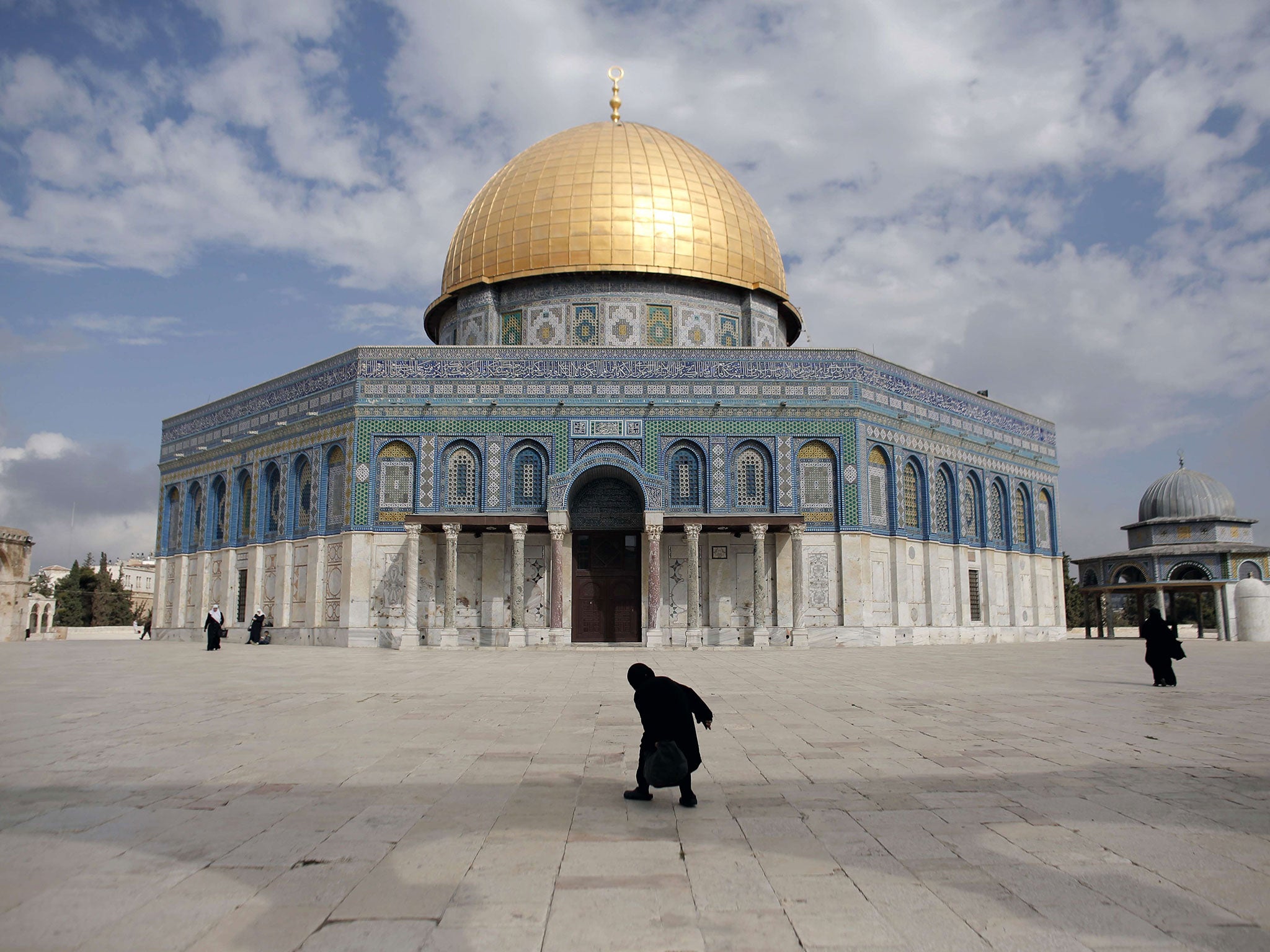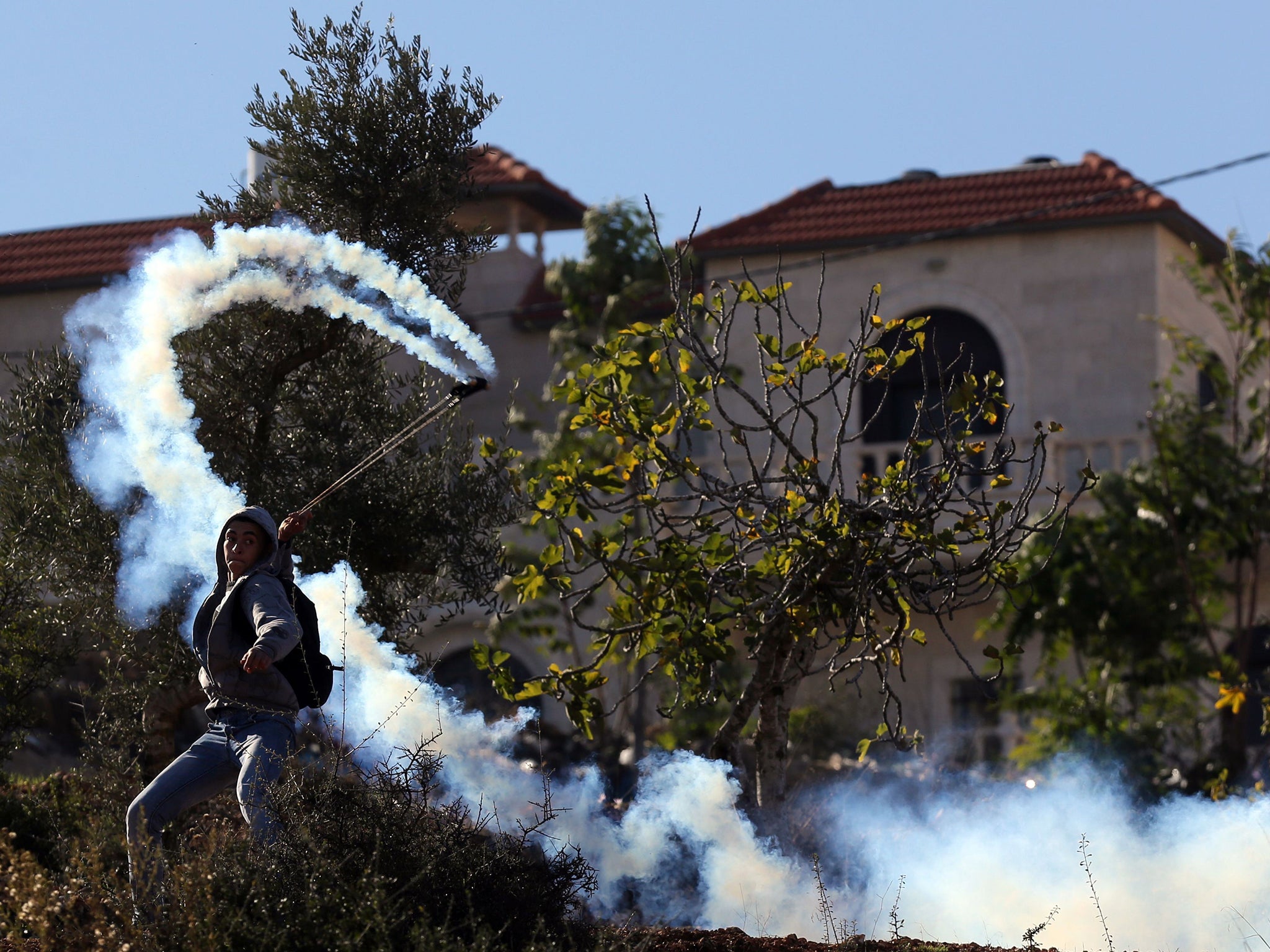Violence will continue for as long as access to al-Aqsa mosque is curtailed
As Israeli-Palestinian tensions threaten to spark a new uprising, Ben Lynfield in Jerusalem examines the causes

Your support helps us to tell the story
From reproductive rights to climate change to Big Tech, The Independent is on the ground when the story is developing. Whether it's investigating the financials of Elon Musk's pro-Trump PAC or producing our latest documentary, 'The A Word', which shines a light on the American women fighting for reproductive rights, we know how important it is to parse out the facts from the messaging.
At such a critical moment in US history, we need reporters on the ground. Your donation allows us to keep sending journalists to speak to both sides of the story.
The Independent is trusted by Americans across the entire political spectrum. And unlike many other quality news outlets, we choose not to lock Americans out of our reporting and analysis with paywalls. We believe quality journalism should be available to everyone, paid for by those who can afford it.
Your support makes all the difference.Tensions between Israelis and Palestinians in Jerusalem are at their most combustible in a decade, raising the threat of protracted violence, which could also ignite unrest in the West Bank.
On Wednesday, Palestinians carried out the second car attack in two weeks on Israeli pedestrians at a railway station, killing an Israeli border policeman and wounding 13 people. Last week, a Palestinian gunman seriously wounded a far-right Jewish activist.
Behind these attacks is the Palestinian perception of an Israeli threat to Islam’s third holiest shrine, the al-Aqsa mosque. This continues to inflame passions despite statements by the Israeli Prime Minister, Benjamin Netanyahu, that Israel will maintain the status quo at the holy site.
How did this start?
The wave of unrest in Jerusalem began in June, when Israeli extremists murdered a 16-year-old Palestinian, Mohammed Abu Khdeir, in a revenge attack for the killing of three Israeli teenagers by the militant Hamas group. Layered on to decades of occupation and with no political or economic prospects for youths, the murder triggered nightly clashes with security forces and stone throwing against the settler enclaves established in Arab neighbourhoods.
Amid this already tense environment, right-wing Israeli politicians became increasingly vocal about asserting Jewish prayer rights in the al-Aqsa mosque compound, which Jews revere as their most sacred spot –the site of their two ancient temples. It has been an exclusively Muslim prayer area since the seventh century (aside from periods during the Christian Crusades of the twelfth and thirteenth centuries) and Moshe Dayan, Israel’s Defence Minister during the 1967 Six Day War, decided to keep it that way after Israel occupied Arab East Jerusalem.
In recent months, a growing number of figures in Mr Netanyahu’s Likud party have come out stridently in favour of instituting Jewish prayer and legislators have proposed a bill towards that end. There have also been provocative visits to the site by figures such as Housing Minister Uri Ariel and the Deputy Speaker of the Knesset, Moshe Feiglin, while Muslim access has been restricted for what Israel says are security reasons. Palestinian media, meanwhile, are leading their coverage every day with stories on the perceived threat to al-Aqsa, while the Palestinian Authority President, Mahmoud Abbas, said the mosque should be defended “with all means”.
Why don’t the Palestinians believe Mr Netanyahu’s assurances?
A century of conflict, in which Israel is seen as taking over more and more Palestinian land, does not build trust and Mr Netanyahu has no credibility with Palestinians. The visits and provocative statements by members of his party and government are seen by Palestinians as expressing the Prime Minister’s views. Moreover, Palestinians continue to witness their neighbourhoods being increasingly infiltrated by Jewish settlers with Mr Netanyahu’s backing. Many Palestinians, including in the political elite, are convinced that ultimately Israel wants to level the al-Aqsa mosque and rebuild the temple on its ruins.
Have Palestinian leaders condemned the violence against Israelis?
No. Over the weekend, President Abbas sent a condolence letter to the family of Mutaz Hijazi, who shot the Israeli far-right activist, Yehuda Glick, and was later killed by Israeli forces. The letter lauded him for defending Muslim sites. Asked about attacks on Israeli civilian targets, Palestinian leaders counter that the real issue is the Israeli threat to the mosque, which they speak of as a “desecration”.
That is exactly the same word that Palestinians used to describe then opposition leader Ariel Sharon’s visit to the al-Aqsa compound in 2000, which triggered the second intifada.

What is an intifada and are we witnessing the start of a third intifada?
Intifada is an Arabic word that means a “shaking off” or an uprising. The first intifada, which was characterised by revolt against Israeli occupation in the West Bank, Gaza, and East Jerusalem, erupted in late 1987 and helped lead to the Israeli-Palestinian Oslo Agreement in 1993 when Israeli Prime Minister Yitzhak Rabin concluded it could not be stopped by military means. The second intifada lasted roughly five years and was marked by suicide bombings against Israeli targets as well as harsh Israeli tactics and Israeli army reoccupation of West Bank cities that had been under Palestinian self-rule. It remains to be seen whether we are seeing the start of a new intifada.
So far the violence has not been part of a co-ordinated effort and analysts say the leadership for an uprising is not in place. On the other hand, the unrest in Jerusalem has been sustained for five months now by stone-throwing youths and people are referring to it as a local intifada. However, Mr Abbas is known to oppose an intifada in the areas under his control, so its spread to the West Bank has thus far been largely prevented.
So what should we be on the lookout for now?
Unless Israel is able to calm the fears about al-Aqsa mosque, we can expect more attacks like Wednesday’s and a continuation of clashes between youths and police. Things may die down and then break out again. Jerusalem’s Mayor, Nir Barkat, believes that punitive measures such as increasing debt collection and demolishing homes for being illegally built are appropriate steps in the current situation, but these seem likely only to increase resentment.
Join our commenting forum
Join thought-provoking conversations, follow other Independent readers and see their replies
Comments